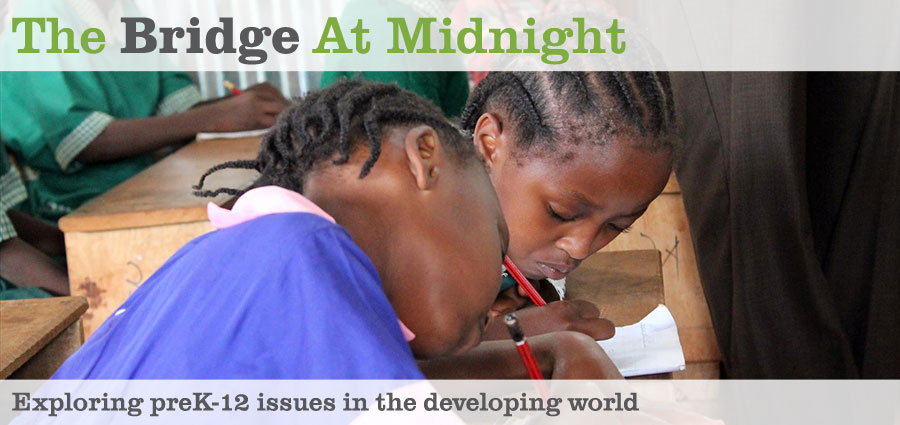More tests in Kenya?
Posted: January 16th, 2014 | Author: Michael Goldstein | | No Comments »
Peter Musyoka of APHRC makes this recommendation.
The Ministry of Education needs to introduce nationally standardized tests at various grades, possibly at grades 3 and 6, so that the outcome can be used to inform the teaching and learning process with an intention of improving learning outcomes.
I wholeheartedly agree with his rec.
Here in the USA, we have math and reading exams in Grades 3, 4, 5, 6, 7, 8 and 10. This helps us in so many ways.
Teachers can pinpoint which kids need more help.
Policymakers can look at whole schools or even whole cities where schools are doing unusually well or poorly, and act.
And at the individual level, parents and kids themselves can act on the information…choose to study more, for example, or (sometimes) change schools.
In the USA, the typical citizen looks at the “wrong” indicator. Absolute performance (heavily influenced by where the kid started). “X suburb has high scores. Y city has low scores. Therefore X’s schools are better.” Erroneous.
Well, it’s not wrong to look at absolute scores, but it should be weighed less heavily than “Test score growth compared to other schools.” That metric is in the control of the teachers and school leader. Growth controls for the starting point of each pupil. What’s left is just “progress during a school year.”
Test score growth is a new type of data. In Massachusetts for example, it was only introduced in 2009. The state government tabulates this growth stuff very carefully. But typically only scholars and a few school leaders even know that it exists. Absolute scores still fill the newspapers and popular perception.
Kenya is the same. So if new tests are ever created for Class 3 or Class 6, tracking pupils over time would be a treasure trove for researchers. Inherently, Kenya must have some schools with amazing teachers who get unusually large gains for kids. But nobody knows who those people are. We can’t study what they do right.


Leave a Reply